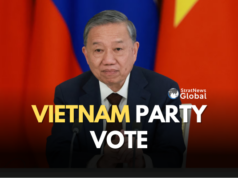Pakistan is once again reaping the bitter harvest of its long-cultivated policy of nurturing jihadist groups, says Ramanathan Kumar, former Special Secretary of the Research & Analysis Wing (R&AW). Speaking on the spiralling violence in Pakistan’s border regions, Kumar described the situation between Afghanistan and Pakistan as “a sea change” from the triumphal mood of 2021, when the ISI chief had publicly celebrated the Taliban’s return to power in Kabul.
“Everything is far from all right now,” he observed, invoking the paradoxical logic of strategy outlined by Edward Luttwak — that a nation’s most effective weapon can eventually become its weakest. “Pakistan’s weapon of proxy warfare has come back to bite it with a vengeance,” he said, pointing to the Tehreek-e-Taliban Pakistan (TTP)’s growing attacks launched from sanctuaries inside Afghanistan despite Taliban denials.
Kumar noted that Islamabad’s alternating strategies of negotiation and force — the carrot and the stick — have both failed spectacularly. The country, he said, finds itself “back where it was in 2007–08,” when militants were nearly at the gates of Islamabad. The irony, he added, was striking: Pakistan’s military leadership now warns Afghanistan against “religious obscurantism” — the very ideology it once weaponised.
Turning to Pakistan’s rhetoric against India, Kumar described recent threats by Field Marshal Asim Munir as “the ultimate irony of the pot calling the kettle black,” given how deeply politicised the Pakistani military has become. He also underlined the contradictions in Pakistan’s foreign policy — “deep military dependence on China” even as it seeks to woo back the United States for economic relief.
Calling Pakistan a “rentier state obsessed with security-centric policies,” Kumar said genuine reform would require “a fundamental change in Pakistan’s DNA.” For India, he advised caution: “Overt force against a wielder of covert tools plays into their hands. Covert games are best left in the covert domain.”
Nitin A. Gokhale is a media entrepreneur, one of South Asia's leading strategic affairs analyst and author of over a dozen books so far on military history, insurgencies and wars.
Starting his career in journalism in 1983, he has since led teams of journalists across media platforms.
A specialist in conflict coverage, Gokhale has covered the insurgencies in India’s North-East, the 1999 Kargil conflict and Sri Lanka’s Eelam War IV between 2006-2009.
Gokhale now travels across the globe to speak at seminars and conferences, and lecture at India’s premier defence colleges. He has founded three niche portals, Bharatshakti.in, stratnewsglobal.com and Interstellar.news.




